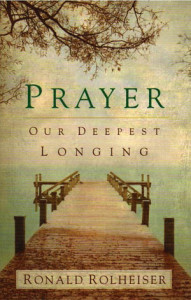On March 7 after the 5 o’clock Mass, St. Monica will sponsor the rescheduled ”Prayer Panel.” This affords us the opportunity to look at the topic of prayer over the next few weeks.
St. John Damascene wrote that prayer is “the raising of the mind and heart to God.” Thus one aspect of prayer involves a conversation and the exchange of voices between God and us. Different types of voices speak to us. Some voices invite, some threaten, some challenge us, others encourage us. Some voices are playful; some voices are more urgent and weighty. In addition, it is important to determine the source of the voices. Again classical spirituality would say that voices, or our thoughts, can come from one of three sources. They can come from God (which is good); they can come from ourselves (which can be good, bad or neutral); or they can come from the powers of darkness (which is not good).
Thus, a key aspect of prayer is to discern the source of these voices as well as to determine which voice is truly God’s voice. Sacred Scripture and Sacred Catholic Tradition tells us that God’s voice in prayer:
- Is heard often in whispers rather than thunder
- Calls us to a higher place and to be a better version of ourselves than we are now
- Is a voice of forgiveness
- Is always heard in the poor
- Calls us to deny ourselves and live with joyfulness and gratitude.
- Can simultaneously challenge and stretch us as it soothes and comforts us.
- Is often found in paradox but the voice always calls us by name, eager to come and meet us.
- Calls us to live beyond fear
Looking at the gospels, the reason the disciples wanted Jesus to teach them how to pray was that they could sense, in Jesus, a power that he drew from His prayer life, which they wanted to experience for themselves. They also had a sense that Jesus’ power came from a source outside of Him and that Jesus’ prayer was a key component in “tapping into” that power.
When we look at Jesus at prayer, we see that His prayer always involved solitude, silence and slowing down. One writer says, “Our lives are like over packed suitcases…. No matter where we are, we always can be reached.” If our prayer life is going to grow, the practice of solitude silence and slowing down will have to be nurtured. Our contemporary society does not lend itself to this practice easily. We will not always, or perhaps even often, succeed. But we need to keep making new beginnings. Only then will we be able to actually “taste for water that we are drinking.”
(From Prayer: Our Deepest Longing by Father Ronald Rolheiser)
